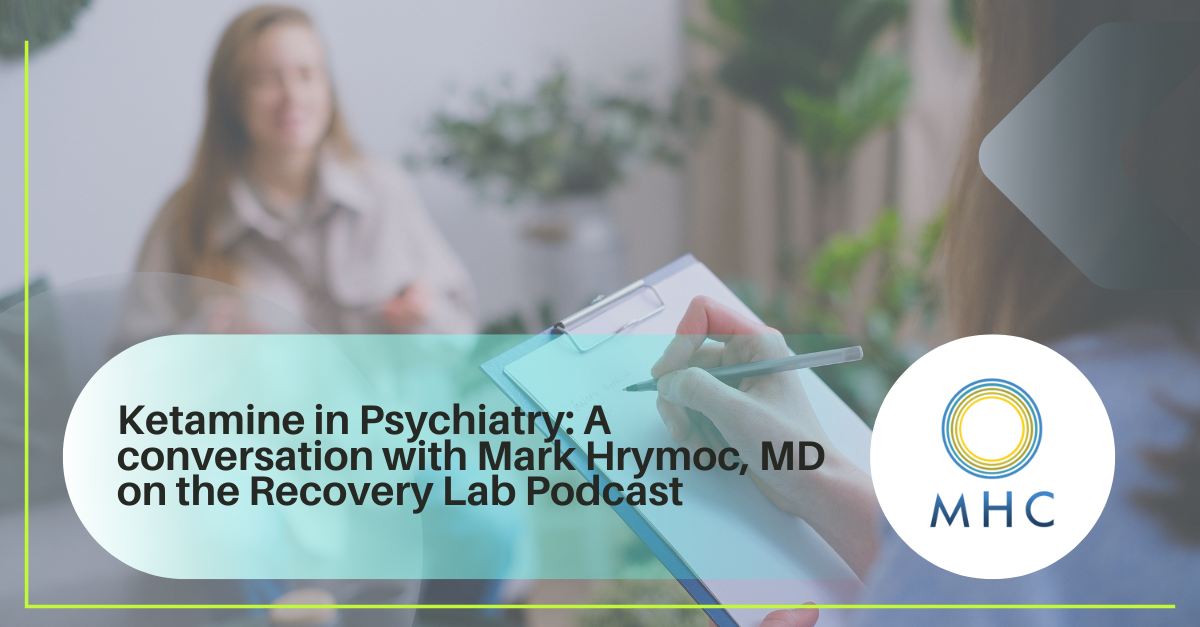Ketamine in Psychiatry: A conversation with Mark Hrymoc, MD on the Recovery Lab Podcast
Mark Hrymoc, MD, addiction psychiatrist and mental health clinician, was recently a guest on the Recovery Lab Podcast, a well-known show focused on addiction, mental health, and what true recovery looks like beyond sobriety. Hosted by Daniel Anderson, David Sugg, and Brynn Knox, the Recovery Lab Podcast is known for honest, grounded conversations with people in recovery, family members, and professionals working across the addiction and mental health space. The show explores the deeper roots of addiction, community-based healing, and practical approaches that move past surface-level solutions. In this episode, Mark Hrymoc, MD brings his clinical perspective as an addiction psychiatrist who specializes in treating co-occurring mental health and substance use disorders. His work consistently emphasizes the importance of treating addiction and mental health conditions at the same time, rather than viewing them as separate or sequential issues. 🔗 Listen to the episode YouTube Spotify Apple Podcasts To learn more …






